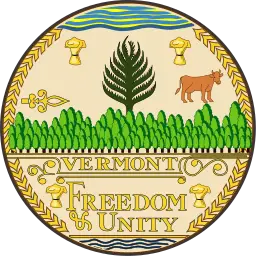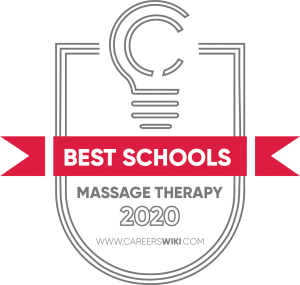…
There are two massage therapy schools in Vermont. Both institutes focus exclusively on therapeutic bodywork, though some of the techniques they teach differ.
Earning a certificate takes less than one year. Students attend attend classes, work in labs, and get practical experience at on-campus clinics. Vermont officials do not establish curriculum standards for MT schools, but these programs meet the requirements that most states impose.
Vermont will have about 120 annual job openings for massage therapists during the decade ending in 2026, according to U.S. government predictions.
Click here to view our list of best massage therapy schools in the U.S.

Vermont is one of the few states that does not have a regulatory board for massage businesses, schools, or practitioners. At last report, legislators in Montpelier were still debating whether to create an agency.
Massage therapists in Vermont do need to comply with health, safety, and labor statutes that some cities and counties enforce.
Massage therapy schools are postsecondary institutions that enroll only students who have earned high school diplomas or GEDs. Taking college-level classes in science, business, and health may enhance admission prospects. To become a massage therapist in Vermont, it is essential to enroll in an accredited college, institute, or academy.
Vermont does not regulate these schools schools or their programs. Most states mandate that curricula feature at least 500 clock hours of classes and clinical experiences. Massage techniques and other therapies make up a major portion of curricula. Most programs cover Eastern and Western modalities.
The National Certification Board for Therapeutic Massage & Bodywork (NCBTMB) agrees with the 500-hour minimum. The organization recognizes programs that feature 125 hours of anatomy, physiology, kinesiology, and other body systems courses; 200 hours of massage and bodywork theory and practice; 40 hours of pathology; and 10 hours of business and ethics.
Some employers do not consider job applicants who graduate from schools that fail to satisfy NCBTMB criteria. Vermont massage therapists may lack the qualifications to practice in other states.
Though there is no licensure requirement, experts advise graduates to take the Massage and Bodywork Licensing Examination (MBLEx). The Federation of State Massage Therapy Board, which administers the exam, offers online registration for an appointment at a Pearson VUE testing center.
We selected the schools below based on the programs that they offer, accreditation, student population, graduation rate and reputation.
View our Ranking Methodology to learn more about how we rank schools.

N/A
N/A
Established more than 25 years ago, this privately owned school in Saint Albans recently expanded its curriculum to meet NCBTMB standards.
The 750-clock-hour program focuses on therapeutic massage. Students learn two forms of deep-tissue massage, as well as Swedish techniques, Shiatsu, prenatal massage, Reiki, cupping, Thai massage, hydrotherapy, and reflexology. There are also science courses such as anatomy, kinesiology, and physiology. The program extends from January to November.
A student clinic serves the public with Swedish massage, myofascial release, craniosacral therapy, Shiatsu, polarity therapy, and neuromuscular therapy. Graduates may return for continuing education classes.
N/A
N/A
Another private Saint Albans institution, BSMBS offers a 625-clock-hour program that takes 10 months to complete. Students attend classes one full day per week. An evening schedule is available.
The curriculum covers physiology, anatomy, kinesiology, Swedish and deep tissue massage, chair and event massage, sports therapy, pregnancy massage, warm bamboo treatments, aromatherapy, and Thai yoga massage. Other classes teach how to start a business, marketing and social media, and therapist wellness and self care.
Classes are limited to 12 students. There is a student clinic, and the school provides career services and continuing education classes.
$17
$36,600
8%
Most practitioners here earn nearly $36,600 a year or about $17.50 per hour, less than the national median of around $41,400 or $20.
However, Vermont’s top 10 percent receive a bit more than their peers in other states—over $81,100 annually or about $39 hourly, compared with the U.S. average of about $78,300 or $37.60. For the bottom 10 percent, the pay is more than $23,260 or about $11.20 in the state, and around $21,300 or $10.25 nationally.
There were 1,090 massage therapists in Vermont in 2016, according to the U.S. Bureau of Labor Statistics. The agency predicts the number will rise to 1,170 by 2026. That would be a job-growth rate of 8 percent, much slower than the projected national median of 26 percent.
Sources: U.S. Bureau of Labor Statistics, CareerOneStop

LIMITED TIME DEAL